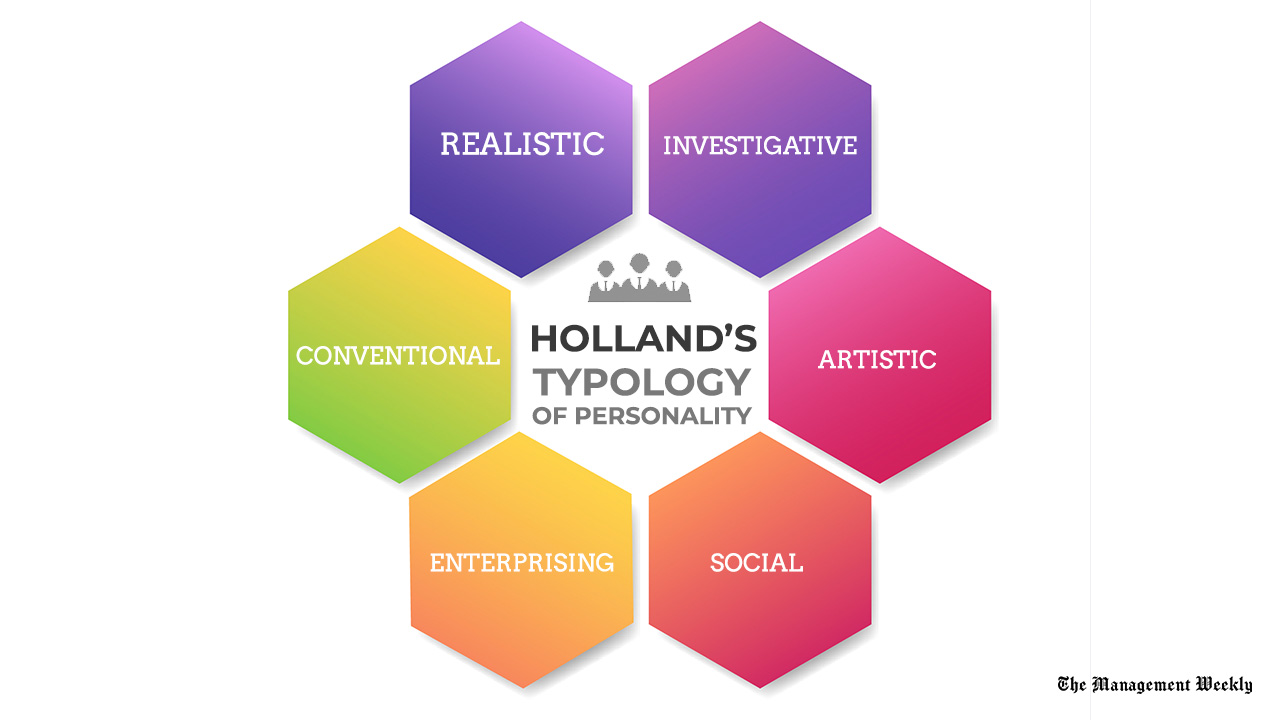The nature-nurture debate points out two distinct factors that influence every aspect of our lives. John Holland argues that an employee would thrive when the job tasks are congruent with personality features. He proposed that there are six major personality types each of which is fit for a particular career choice. This model is called the RIASEC model of personality or Holland’s typology of personality.
According to the RIASEC model, employees are happiest when they work in a job that suits their personal needs. In addition, employees have a need to be surrounded by those who understand them. This is because only in such circumstances are they able to express their attitudes clearly and utilize the skills and resources they have learned during their formative years.
The six traits in Holland’s typology of personality are :
R: Realistic
I: Investigative
A: Artistic
S: Social
E: Enterprising
C: Conventional
Contents
Realistic
Individuals having a realistic personality type are very practical. They love working with tools and machines. Hence, suitable occupations for them include engineering, farming, assembly line workers and other careers that require scientific knowledge, skill, strength and coordination.
They are likely to be shy, persistent, conforming and practical. Realistic individuals are good at scientific and mechanical work. However, they actively avoid social situations. Hence they may get uncomfortable in occupations like teaching, medicine and front-line jobs. They thrive at jobs that require little or no interaction with other human beings.
Investigative
They are good thinkers and organizers. Such people are able to connect the dots and comprehend complex situations and problems. They are have excellent mathematical and scientific skills. Investigative individuals are very curios about their surroundings and how things work. They hardly take things at face value without understanding the background and working of the situation.
Hence, such people thrive in occupations like biologists, economists, math and news reporting. A major weakness of investigative individuals is that they have poor people skills. Therefore,despite being curious and novel thinkers, they are not fit for teaching and education. They are not good leaders.
Artistic
Artistic individuals are expressive, original and independent. They are not very organized. Hence they love jobs that are ambiguous, unsystematic and do not require a lot of self-discipline. Unlike realistic and investigative individuals, they love to interact with people and have good social skills. However, they are often seen as impractical, emotional and disorganized.
Artistic people are good at creating novel pieces of art, music drama, etc. Mostly, they like public speaking, writing and communicating with other people. They can be good educators, authors, painters, poets, decorators, etc.
Social
They love to interact with others. Social people have skills like emotional intelligence, empathy, compassion, proactivity, extarversion and altruism. Therefore, they prefer activities that require helping and empowering others. Additionally, they feel a strong drive to enable others overcome their suffering.
You will find such people rallying persistently for social issues, like equal pay, awareness about diseases, equal rights for all. They also step forward to help those in financial distress, medical distress and people dealing with natural disasters.
Social people undoubtedly form a very important part of the society. They are cooperative, friendly and understanding. Occupations that suit them are teachers, nurses, social workers, coaches, etc.
Enterprising
Enterprising people are also good at social skills and people management. However, instead of having an altruistic orientation, they have a business orientation. They are excellent marketing managers and negotiators. Such people know very well how to persuade and convince others. They have a high need for power.
Enterprising individuals love to meet new people and share their ideas and products with them. Their main aim is to sell the product or service. They have high energy, confidence and good verbal ability. However, they are not good at analyzing situations. Hence they usually avoid subjects like math and science.
They have good business sense, which takes them forward in life. Usually they are very successful in life.
Conventional
Such people are very rule-bound, orderly and disciplined. They cannot tolerate breaking the rules or engaging in ambiguous activities. Accuracy and precision in task is very crucial for them. This is because they have a rigid and inflexible personality.
Usually they lack imaginative and creative thinking ability. They fare well in jobs that require a lot of paper work, such as accountancy, bank teller, clerk and so on.
Conclusion
The Holland’s typology of personality states that your job and personality should fit. However, there may be cases where an individual may have a combination of two types. In such cases, they may thrive at a number of jobs.
